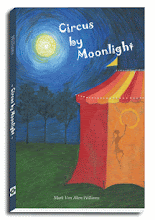Have you noticed that just about everything has become “über this” or “über that?” All you have to do is watch any segment on your favorite morning show, and surely the “so called” experts will use “über” in their descriptions of any object, trend, or fashion.
So what in the heck does it mean and how did it arrive at such a ubiquitous place in the America lexicon?
Let’s get the formalities over with first. It’s über, not uber. They are not the same thing. If you want to write it in English without the two dots, you would write “ueber.” It is from the German language and refers to something super or supreme. The literal meaning in German is “above.”
Many of us, including me, were introduced to the word when it was used as a synonym for “super” on a Saturday Night Live sketch in 1979, called What If?. They pondered the notion what if the comic book hero Superman had landed in Nazi Germany when he first came from the planet Krypton. Would he have taken on the name Überman?
Shortly after this, in the early 1980s, the California punk band, the Dead Kennedy’s, used the term in the anti-California government song “California Uber Alles,” which was a take off of the German motto of “Deustchland Uber Alles,” which means “Germany above all.” The term was then picked up by the natives of California (surfer dudes and punks), and then was adopted by the teenagers, which led to the eventual use by the majority.
It went from—“That band is uber hip”, to-- “that is an uber blog!”
I wonder if many people realize that one of their favorite terms has Nazi roots. The term “über” crossed over into English from the work of German philosopher Friedrich Nietzsche, when in 1883 he coined the term “übermensch” to describe the higher state to which he felt man might aspire to. And then during Adolf Hitler’s rise to power, he bastardized Nietzsche’s term, using it as part of his description of an Aryan master race. Most importantly, it is this association we have with the image of the Superman hero that the term has taken on much of its English sense implying irresistibility or invincibility.
So the Nazi German anthem, re-used by punk bands, helped the term become popular in America.
When words like this come into such widespread use, I can only wonder if those speaking them have any clue as to what the hell they’re saying.
Now here’s another one for you to contemplate: fashionista.
Got any other suggestions for words to eliminate from our lexicon?
Subscribe to:
Post Comments (Atom)







2 comments:
Everytime I see "TV personality" under a "celebrity's" name, I cringe. I'd also like to ban use of "flusterated" and a commercial running on TV where the woman talks about insurance preventing axi-DENTS.
I, however, am not a perfect pronouncer either; as you know...
Post a Comment